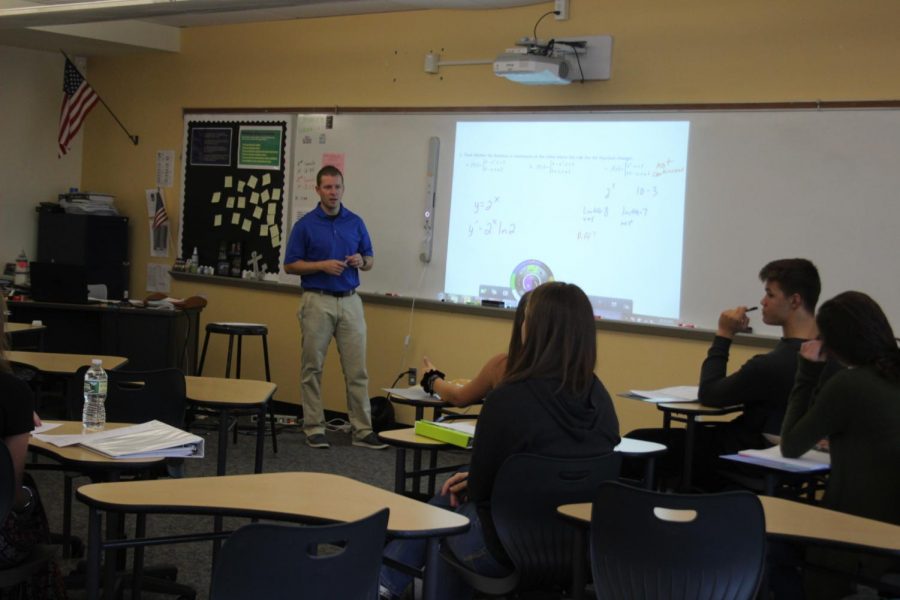Calculating at New Levels
November 13, 2017
From the first week of kindergarten, students are introduced to math. If you have one block and add another block on top, you now have two blocks. For the next 12 years, students continue to build on that initial foundation of knowledge, adding block by block as they are introduced to concepts like multiplication tables and algebra. But what happens when there are no blocks left, but your building isn’t finished?
That was the case for a few talented Scituate High students who completed AP Calculus during their junior year and found themselves with no next step to take as a senior. SHS math teacher Craig Parkins wasn’t content with forcing students to wait an entire year before jumping back into calculus in college–especially students who had exceptional drive and talent as math students. “It would be a long gap between doing any calculus stuff,” said Parkins.
In fact, this year, BC Calculus is not limited to students who complete AB Calculus as juniors: Five of the twelve BC Calculus students haven’t taken AB Calculus yet, which presents an early challenge for Parkins. So far his approach has been, “Let’s figure out what you know, and what you don’t know,” emphasizing the importance of self-reflection in catching up those students who didn’t take AP Calculus AB last year. It’s easy for Parkins to be flexible though, as he’s essentially working on the fly, saying, “In terms of how the class runs, I’m figuring it out on a day=to-day basis. Not material-wise, but how do we deliver that [material].”
Scituate High seniors Casey Boynton and Callie Herschfield echo the idea that the class is run heavily by the students. Boynton said, “He’ll recommend stuff for homework,” but it’s ultimately up to them to decide what they need to learn. Once they understand what they don’t know, they can work it out with fellow students, as he adds, “We do a lot of group work.”
While there’s some catching up to do now, the future is certainly exciting. According to Parkins, “We have no limit to how fast we can go if everybody’s understanding what’s going on.” When asked if he would continue this program in the future, Parkins said, “It’s unknown,” adding, “if people are into it, let’s do it.”
